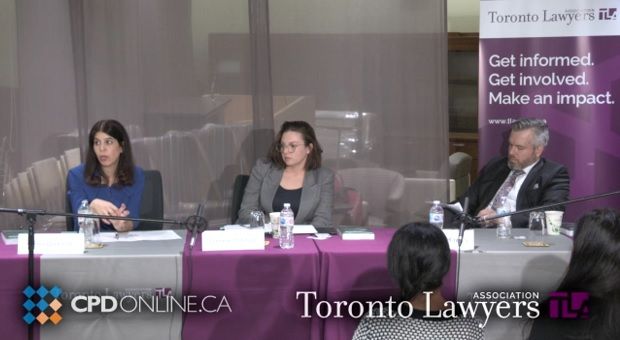
To purchase this video please click “Add to Cart”.
Login to watch this video if you have a subscription. Learn more about subscriptions.Whether representing the Crown or the defence, there are a myriad of things to consider when preparing for a sentencing hearing. These include, but are not limited to, the circumstances of the offence, unique features of the case or the offender’s role, types and range of available punishments, the offender’s background, as well as the legal principles and procedural and substantive rules applied at sentencing.
Join experts Danielle Robitaille (defence) and Erin Winocur (Crown) as they provide a clear, concise and balanced review of the latest trends and most challenging issues, flagging areas requiring special attention as a result of Bill C-75 amendments.
You will also learn about:
EDI Accreditation Criteria: Value of diversity and inclusion; Understanding power and privilege, unconscious bias or cultural homophily
Professionalism Content (15 mins: 7.5 mins/speaker):
Consideration of the new Criminal Code provision that makes it a statutorily aggravating feature on sentence if the victim is Indigenous. This is related to but slightly different from the well-established law around sentencing Indigenous offenders. We also plan to look at the emerging issue of how to consider race in the context of sentencing African Canadian offenders
Danann Hawes, Senior Publisher, Practice and Professional Licensing, has over 17 years' experience building content, the first 12 years of his career spent at LexisNexis Canada where he held the role of Director of Content. In that role, Danann managed large content acquisitions teams responsible for all domestic publishing activity, digital and in print, across all market segments. Danann switched gears in 2015 when given an opportunity to create a bespoke practice division (resources for practicing lawyers) at Emond Publishing. Working closely with the marketing and sales departments, Danann has been able to build a successful practice program and a new revenue stream for the business. The standout performer has been the “Criminal Law Series”, the 2018 recipient of the Hugh Lawford award for excellence in legal publishing and the 2019 Walter Owen Book Prize. In his spare time, Danann is a screenwriter and published short story author.
Ms. Robitaille is a partner at Henein Hutchison, where her practice focuses on criminal, regulatory and disciplinary litigation at both the trial and appellate levels. Ms. Robitaille defends both individuals and corporations charged with regulatory or criminal offences. She has appeared before all levels of court in Ontario. Ms. Robitaille has a Bachelor’s degree from the University of Toronto and an LL.B. from Dalhousie University, where she won the Muriel Duckworth Award for “raising consciousness of women’s issues and feminism in the legal community.” Ms. Robitaille has lectured extensively including at The Law Society of Upper Canada, Osgoode Professional Development, The Advocates’ Society, the Office of the Chief Coroner of Ontario, Ministry of the Attorney General’s “Crown School” and the Ontario Court of Justice. Additionally, Ms. Robitaille is an instructor for the University of Toronto’s Trial Advocacy course.